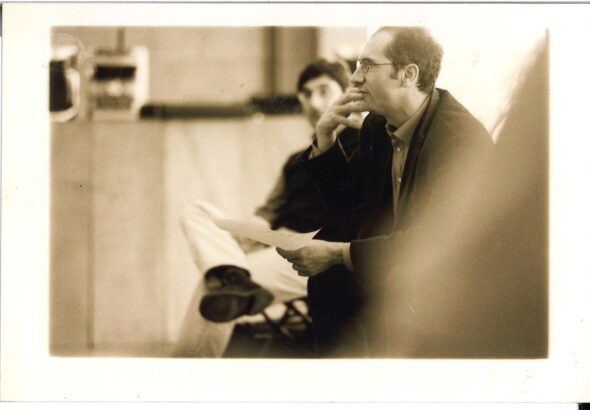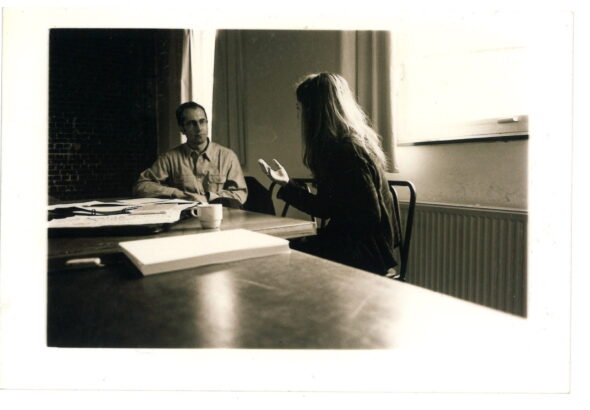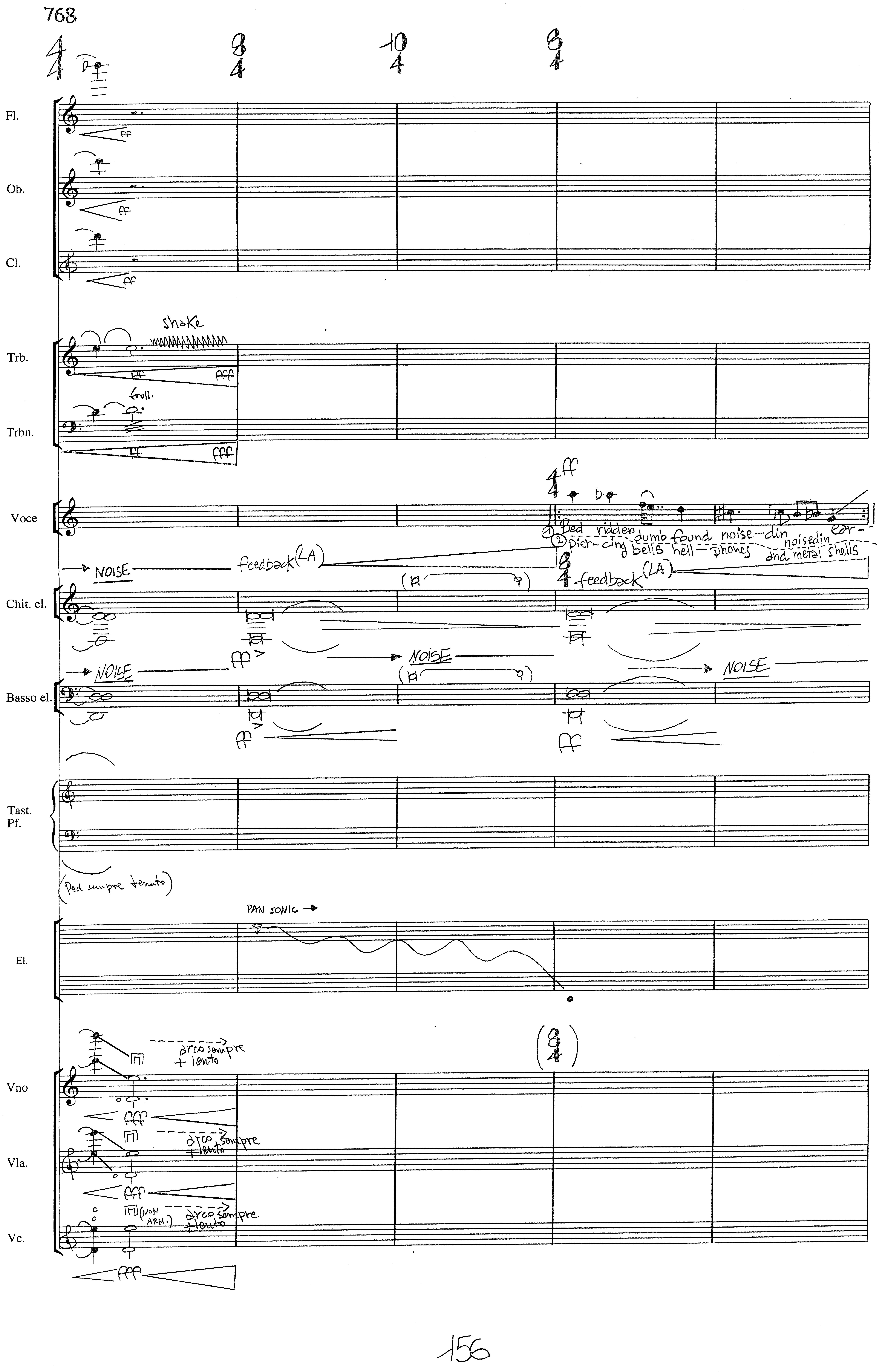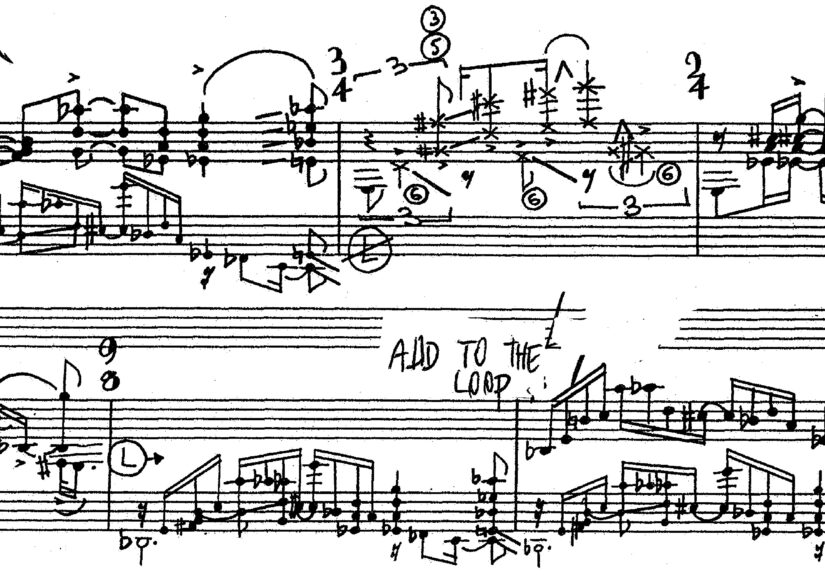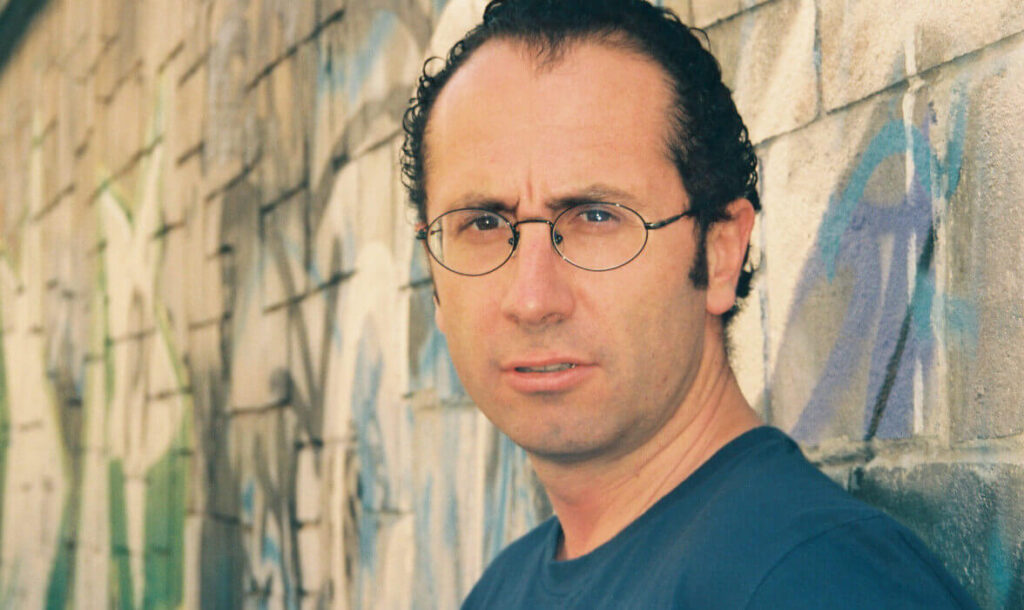
The in-depth studies of Obiettivo Contemporaneo dedicated to the figure of Fausto Romitelli continue. After an initial conversation with Elena Casoli, we got in touch with Tom Pauwels. Through his experience, we explored the ‘electric’ period of the Italian composer, his relationship with Ictus Ensemble, and how his works have given a different face to contemporary music.
Tom, thank you for accepting our request.
When exactly did the collaboration between Ictus Ensemble and Fausto Romitelli begin?
Ictus met Fausto in the late 1990s through ictus pianist and artistic director Jean-Luc Plouvier who was informed by Marc Texier (voix nouvelles) that Fausto’s work displayed qualities that closely matched a dynamic and interest that was already typical of the ensemble at the time. Ictus then became the commissioner of Professor Bad Trip Lesson III. Subsequently, on October 3, 2000, we created the complete Professor Bad Trip cycle at the Musica Festival in Strasbourg (at maison de la radio) a few months after Fausto has been present at ictus as guest lecturer alongside Luca Francesconi. I did not experience that particular seminar very consciously, not being yet so intensely involved in ictus activities.
When did you meet him for the first time?
My first clear memory is a walk in Brussels during spring of 2001, with Fausto and composer Joanna Bailie, a mutual friend of both of us, who was just living in Brussels at the time. Fausto was of course also present before this during the rehearsals in september 2000 at the ictus studio in preparation for the creation in Strasbourg, right after that summer. For me, this particular concert was the first major challenge as a new guitarist of the Ictus Ensemble. Previously, Ictus worked with a Dutch guitarist who was less interested in throwing himself into work for electric guitar). I had spent a month end of summer from morning to night working on the parts of the three lessons, which at the time was quite a challenge technically and musically. I realized only too well into what degree an electric-guitarist-in-the-ensembe must be prepared in order not to fall behind at the first rehearsals. Our then conductor Georges-Elie Octors was a living legend for me and I had already come to know him as a pedigree musician who was very result-oriented. How I then as a guitarist within an acoustic ensemble had to position myself was very much my responsibility. I realized very well then that I had to be prepared to be able to absorb instantly any type of musical remark. To be able to do that I had different qualities of distortion, volume, variations of equalizations..;etc under my feet, in order to be able to quickly respond to certain requests from the conductor and Fausto in the 2nd place (without making the ensemble wait while fiddling with effects). In that sense, the first encounter with Fausto was rather limited. He was very satisfied overall with what I had worked out. For Ictus as a whole this was in retrospect quite a seminal experience, working on what would be the blueprint of another increasingly important part of our identity (the electric band) with a dedicated sound engineer as a member of the ensemble
When you started collaborating, what were his specific interests? Was he already familiar with the electric guitar, or did you have to introduce him to particular techniques and sounds?
Fausto had already gone through quite a process regarding writing for electric guitar. Lesson 1 is still very classic in concept: a rather heavy writing, aiming at producing maximum resonance, as you would for classical guitar, but with already notating elements such a microtonal bendings that came from his study of spectral music infused with his knowledge of solos by Jimi Hendrickx that he said he had once transcribed to the letter. Lesson 2 is already a lot more idiomatic and Lesson 3 is even more suited to the electric guitar. The score of Lesson 3 was written and finalized without any intervention or feedback from my part.
During those years, did you ever discuss his works for classical guitar, or had he completely moved away from that instrument to focus exclusively on the electric guitar?
We never seriously discussed his music for/with classical guitar.
In 2002, Romitelli composed Trash TV Trance for you, a piece that has become a cornerstone in the electric guitar repertoire. How did the idea for this piece come about?
Trash Tv Trance was indeed a result of this fruitful collaboration around Professor Bad Trip. The commission from Ictus to Fausto for a solo then fit into a concert composed of commissions for solo instruments and electronics that took place at the Kaaitheater (brussels) and was also considered as some sort of a welcome gift to me as the ensemble’s new guitarist. In preparation for this, Fausto spent two days at my home in Brussels. All the equipment i showed him at that time (the line 6 delay-modeler, the distortions, the cello bow, the 2 euros coin, the razor, etc ) he then somehow incorporated in the piece to my great surprise and consternation as this proved to be quite the challenge.
Trash TV Trance requires complex technical preparation. Over 20 years after its creation, do you remember how you approached such a demanding work? Did you have to modify your gear to perform the piece?
I don’t think back on the creation with much nostalgia I must honestly admit. The score only arrived by fax on Ictus’ desk 15 days before the premiere. That was far too little time to master the score in relation to the complex choreography of dealing with the effect pedal and the various tools. I needed a lot of time afterwards to transform that somewhat traumatic experience into a positive one. In preparation to the second performance, I made the switch from a sequence of mainly analogue effect pedals to a multi-effect unit that enabled me to achieve radical effect changes more rapidly. At the same time, after mostly very positive feedback from a very broad audience about the theatrical qualities, I realized how important it was to allow a not too relaxed performance situation and to continue to cherish a certain degree of risk and urgency. At the same time, it remains a work that continues to sound very different in every space and context. For example, adjusting the jack noise (the buzz, opening sound) requires adjustments each time in function of the space and the electrical circuit on stage that sometimes works with it and sometimes against it. The necessary adjustments to the equalizing always bring about a certain chain reaction that makes every performance of this work have a slightly different profile.
The album Professor Bad Trip has become an essential reference in contemporary music. Where did the idea originate, and how did you structure the project? Jean-Luc Plouvier has often mentioned that it would be nearly impossible to recreate those recordings live today. The album is the result of multi-track studio recording and 2 months of post-production by mainly Jean-Luc Plouvier zooming in on elements, emphasizing specific sound ideals, dramaturgical visions. You could say that part of the interpretation and access to the work was realised in post-production. For quite some time this recorded result was felt as impossible to reproduce live. Only recently (in October 2023 at the occasion of the Venice Biennale) we went a step further or rather closer to this post-production ideal. The strategy was here to have one performer extra on stage dealing with the live processing (Jean_Luc at the keyboard) while another pianist would worry about the acoustic piano part (Marina Delicado)
In 2002, Fausto Romitelli was already suffering from severe health issues, which would lead to his passing in 2004. How did the ensemble cope with such a painful loss?
I remember thar our general director at that time Lukas Pairon and Jean-Luc Plouvier attended his funeral in Italy. Paradoxically our/my memory of him intensified while gaining experience with his work. Somehow I only got to know him much better only much later.
Twenty years after his passing, tributes, conferences, and concerts continue to celebrate Fausto Romitelli’s legacy. Why do you think his music remains so relevant and significant today?
His music is a rare combination of refined instrumental writing and a great sense for drama-theatre-spectacle. His music breaths & speaks to the audience. Not many people in ‘new music’ milieus know that his music became quite known in dance/performance-milieus. The French choreographer Maud Le Pladec (choreographing the olympic games in paris recently) used the full Professor Bad Trip cycle as the basis for PROFESSOR, a choreography for three men (i was one of them) premiered in 2009. In that work ”everything that is heard is shown through the body’. This work was shown over 60 times in Europe, in Asia, south-America. After this Trash Tv Trance become the centre of POETRY, a new choreographic project of Maud Le Pladec that toured as much as the first one. This tells a lot about the potential of the music and how it speaks beyond our new music scene.
